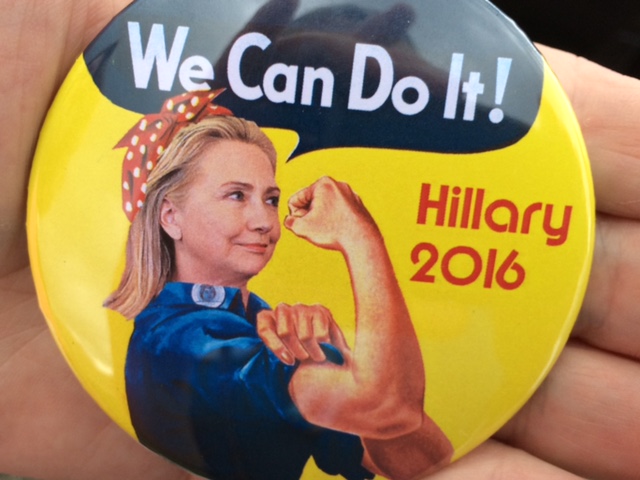 Within the national media coverage of the 2016 Presidential election, there is one perspective that the media hasn’t really touched upon: Why some women dislike Hillary Clinton. I have a theory: It’s called a “girl crush.”
Within the national media coverage of the 2016 Presidential election, there is one perspective that the media hasn’t really touched upon: Why some women dislike Hillary Clinton. I have a theory: It’s called a “girl crush.”
When I accepted the position as president of a women’s organization back in the late 1980s, my husband cautioned me that there might be some women who wanted to see me fail. My reaction? First, I rolled my eyes in disbelief, then I said, “Oh, come on. You’re a man. What do you know about women? Women help and support each other.” Yes, I was young and naïve back then. I learned the hard way, through my own experience, exactly what my husband warned me about. He was absolutely right. There were women within my “sisterhood” of colleagues who did not want me to succeed*.
“How could that be?” I asked myself. “It’s (almost) 1990! Women have progressed so much. We’ve come so far.” I really believed that back then. What I know now more than ever is that women can be – and often are – their own worst enemies when it comes to helping each other move forward.
Case in point: Hillary Clinton. As a woman, I get genuinely excited about the prospect and possibility of the first female president of the United States. What a tremendous boost for women in our country, to know that we – as women – can hold the most prestigious office in America.
Then I think about the lyrics of the Grammy Award nominated song, Girl Crush by Little Big Town, and I wonder if some American women have a girl crush on Hillary Clinton.
The song is sung in a sarcastic, spiteful way and tells the story of a jilted woman who jealously wants to be just like the woman who is now with her ex. “I want what she has…Yeah, ‘cause maybe then you’d want me just as much…” In reality, the woman despises the other woman and everything about her. She doesn’t really want to be like her; she just wants what she has.
Some American women may be viewing Hillary Clinton from that “girl crush” perspective. “If I can’t have what she has, I’m not going to vote for her!” How pathetic.
In her book, Daring My Passages, author Gail Sheehy shares a story from earlier years when magazine editor Tina Brown shared her dislike of Hillary Clinton. When Sheehy pushed for clarification, Brown finally admitted that Clinton was too “perfect.”
Negative comments that female colleagues, family members, friends, and women featured in media interviews have said about Hillary Clinton have surprised me. “She’s already been in The White House; we don’t need anymore of her.” Or “I don’t trust her.” Or “I hate her!” One longtime female friend of mine said, “I’m not voting for her just because she’s a woman.” To that friend and to American women who share those thoughts, I simply say, “Why not? Why wouldn’t you? How many years have we, as women, said to each other, ‘If you want to see change, real change, put a woman in charge!’?” How many women could deny that truth?
Of 196 countries around the world, only 28 (14%) have female leaders.
I do believe that some American women don’t see the value of putting a woman in The White House as president. But…are they the same women who don’t care if women get equal pay as men? Who don’t care if they have to work longer hours and get fewer perks than their male counterparts? Who don’t care if women are sexually violated by men? Who don’t care if women are objectified in the media? I do see the value, and I wish more women cared about each other.
Earlier this year, I reviewed Hillary Clinton’s biography and was impressed with the positive work that she has consistently accomplished throughout her life for women, girls, and families, equal rights and human rights, and healthcare. She is, hands down, the best qualified person to serve as Commander in Chief.
Recent studies show that women simultaneously use the right and left hemispheres of their brain, giving them a greater capacity to process data more quickly than men, who predominantly use the brain’s left hemisphere. By nature, women are more collaborative, nurturing, and inclusive in their actions. Women do, in fact, make better politicians. They can also multi-task better than anyone else (scan the headlines, apply lipstick, and finish writing a report all at the same time).
If there are any doubts in your mind, ponder one important question: In what ways would the world be different if women were in charge? You may be see things in an entirely different light.
(*I didn’t fail, by the way; I actually saved the women’s organization from going under, with the help of an exceptionally gifted female staff leader and a small group of like-minded women who stayed with me through some very turbulent times).
Photo: CZust
